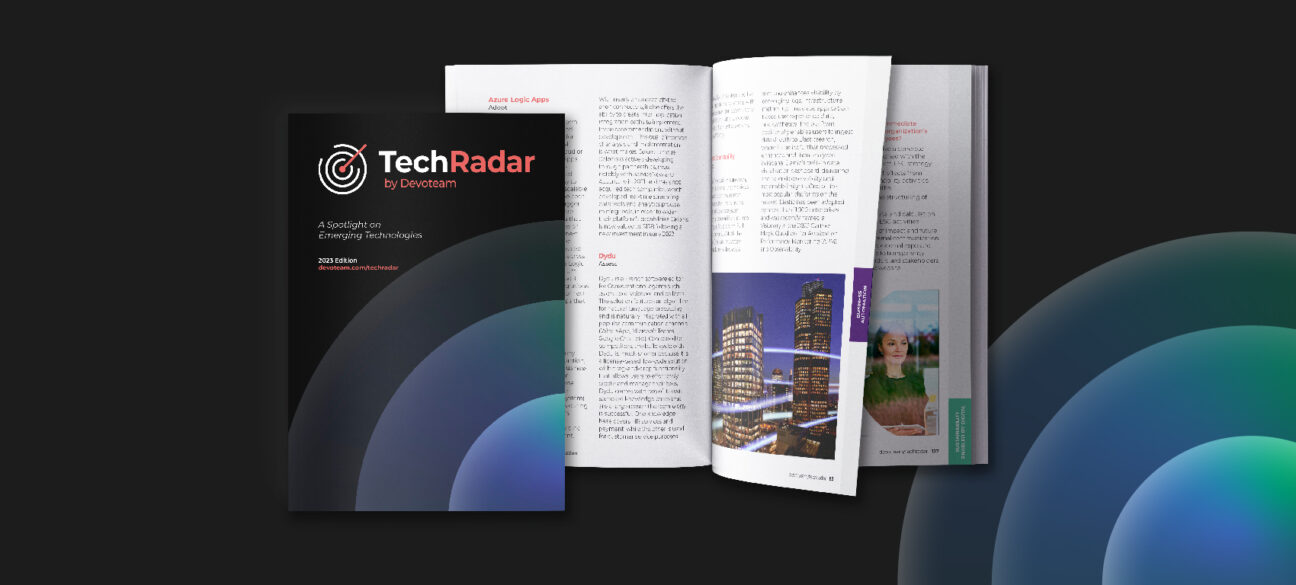
Devoteam TechRadar 2023 Hot Topic – Distributed Cloud
This article is a selection of the 2023 Devoteam TechRadar, it’s designed to introduce the context of the chapter by covering a hot topic in the industry.
This year’s focus is on the Cloud Native era – a new era where technology and business are more interconnected than ever. Companies must prepare for disruptive models built with, in, and for the cloud. The technologies in Devoteam TechRadar 2023 are mostly all participating in this movement.
Sovereign Cloud is hot right now, here’s why
Data is power in a modern data economy. As a result, cloud services are invariably in the spotlight. Essentially, it’s about data: where does it live, where does it flow, and who controls it?
EU corporations and organisations store more data in cloud data centres. The EU wants to reduce its reliance on foreign corporations and sees cloud computing as a driver of AI and other technologies. EU rules such as GDPR, Data Act, and Data Governance Act govern cross-border data flow to prevent non-European agencies from accessing data. The guidelines require storing sensitive data on sovereign territory. Now, Chief Data Privacy Officers should know what data is stored in the cloud and if it is transferred outside the EU.
Public clouds are useful for information not subject to data sovereignty regulations, but compliance needs a hybrid or private solution. Private clouds can meet data sovereignty needs, but they need dedicated data centres maintained by the company or a provider with dedicated hardware and are costly and time-consuming. Factors to consider include jurisdictional control, local oversight, data portability and customizability.
Data sovereignty is thus addressed with sovereign clouds. It’s like a semi-private cloud that combines public and private features. Using a sovereign cloud is like using a private cloud without the IT headaches.
Devoteam’s Recommendation to get started on Sovereign Cloud
Protecting data as a new strategic asset necessitates sovereign clouds to use data wisely. Customers seek cloud benefits but must also fulfil fast-changing data privacy rules, while organisations safeguard cloud data from cyberattacks. As these rules affect business operations, companies are looking for better ways to comply and avoid risks. They require a secure, local platform to store and analyse data without outside intervention.
Sovereign cloud should be considered as part of the cloud strategy of any organisation that deals with sensitive data. It is likely that regulations will change and become more strict over
time. This is the time to start preparing how to handle these regulations. That should be driven by the owner of the data in the organisation, the compliance team and the IT team, to create a cloud strategy that can cater for different kinds of needs.
A few quick recommendations are to:
- Assess your data and manage all risks: including data sovereignty and foreign access threats.
- Assign a Chief Data Privacy Officer or Data Guardian.
- Adopt the Cloud Smart approach.
- Consult with an expert for multi-cloud strategy advice.
As a result of this, the sovereign cloud should be incorporated into an overall multi-cloud strategy. Data isn’t all the same, and clouds differ from one another. Taking the sovereign cloud into consideration is a smart move for your cloud strategy as it helps adjust to the current regulatory maze. Sovereign cloud thus, not only provides flexibility and scale for data storage and processing but also helps in complying with residency and sovereignty requirements.

Want to learn more about Sovereign Cloud?
Check out TechRadar by Devoteam 2023 to see what our experts say about it in the market.